Many opinions say that resident doctors have outstanding learning abilities, are strictly selected and well-trained to carry out the mission of taking care of people's health, so they deserve to be considered the elite of the medical industry, even the "elite of the elite" in the medical industry.
Dan Tri reporter contacted a number of medical staff who had gone through residency training to clarify this point of view.
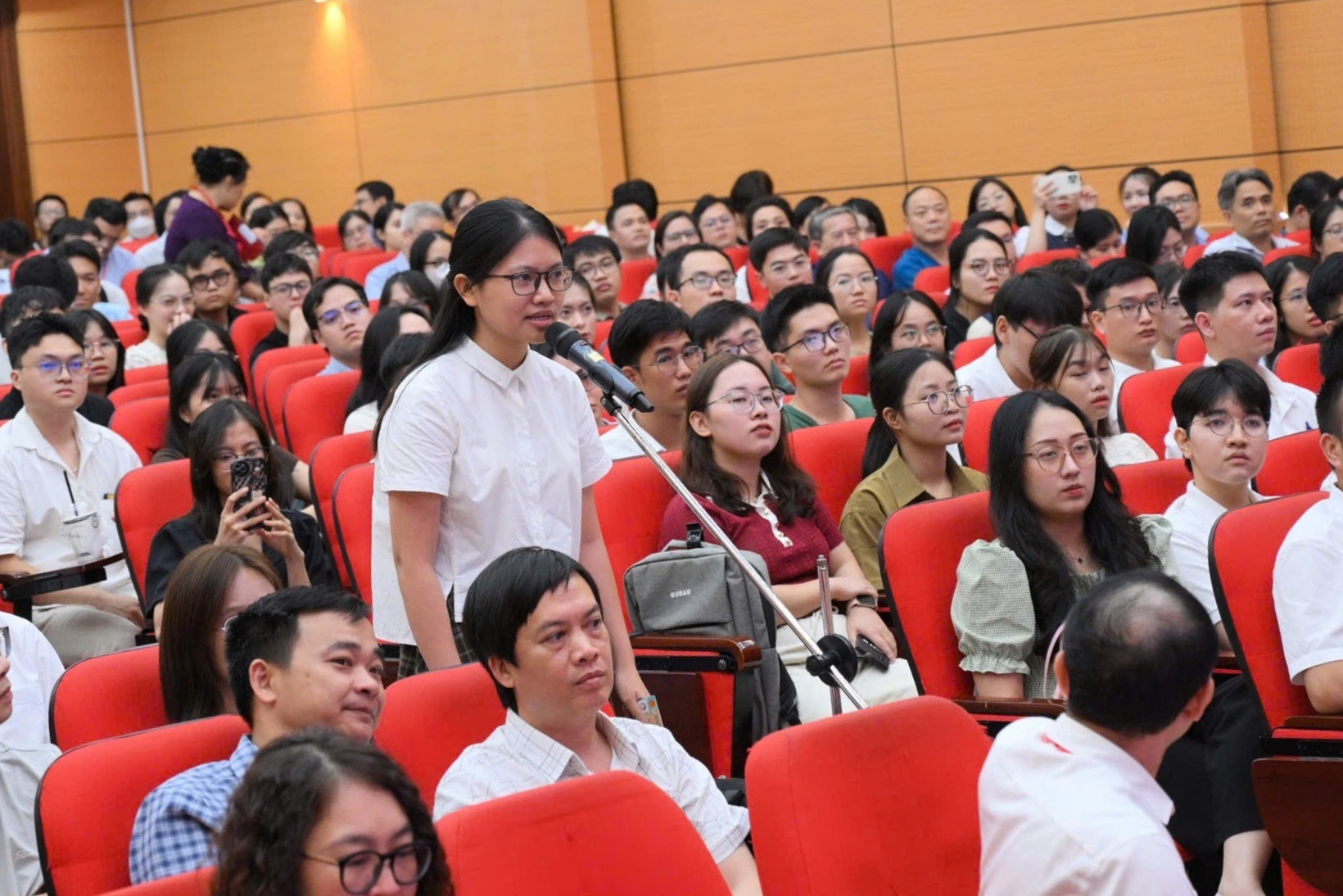
The "Match Day" ceremony to select resident physicians of Hanoi Medical University (Photo: School).
Are current residents different from the past?
MSc. Dr. Nguyen Ho Vinh Phuoc, Head of the Social Work Department of a public hospital in Ho Chi Minh City, said he was a resident physician at the University of Medicine and Pharmacy in Ho Chi Minh City during the 2006-2009 school year.
Doctor Phuoc recalls that, during his time studying, although there were many candidates taking the exam, the quota for each major was only about 2-3 places, so the competition rate was very high. After choosing to take the exam and passing the Urology major, he was given a real "residency" at a leading specialized hospital.
At the same time, during the training program, Dr. Phuoc and other students were also rotated for a limited time to end-line hospitals in Ho Chi Minh City.
According to Dr. Phuoc, the medical residents in his school year are exempted from tuition fees, and the school also has scholarship policies for those with good academic results. Along with that are support policies, medical examination fees, and surgical assistant regimes at the hospital...
Adding up all the financial costs, the resident doctors at that time were not burdened with “bread and butter”, so they could focus all their attention on studying. For current resident doctors, they have to pay tuition fees throughout their training period.
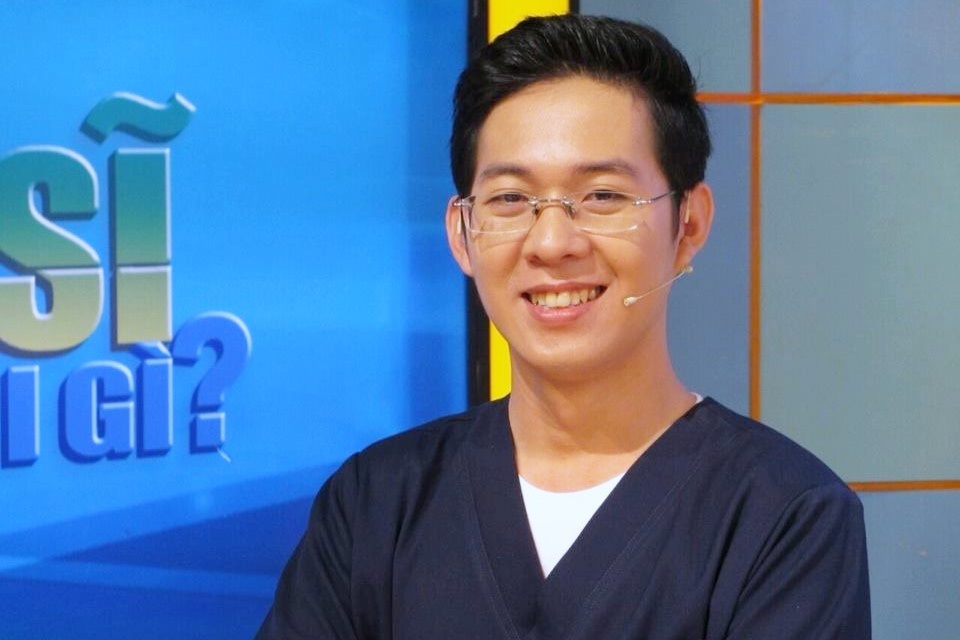
MSc. Dr. Nguyen Ho Vinh Phuoc (Photo: Doctor).
However, Dr. Phuoc believes that finance is not too important an issue for resident doctors, because what they need is a comprehensive clinical practice environment, to follow leading experts to learn in-depth expertise and to develop relationships to have many career opportunities.
Around the world , resident doctors are also willing to use government loans during their studies and pay them back gradually after they have completed their studies and have income from practicing.
Dr. Phuoc said that population growth and increasing demand for health care could be the reasons why the number of residents trained at medical schools has increased significantly to meet the actual situation.
Therefore, the previous “elite” style of training of resident physicians is gradually shifting towards training as “concentrated specialist physicians”. Looking at the world, many developed countries stipulate that “residency” is a mandatory path for doctors to practice their specialties.
After all, residency is the beginning of a training and practice process, a "small achievement" for doctors to encourage themselves, thereby creating motivation to strive for a long-term practice. Therefore, it is necessary to have a more precise definition so that society can clearly understand the concept of "resident doctor" in the new situation.

Doctor Nguyen Ho Vinh Phuoc was awarded a residency degree by Ho Chi Minh City University of Medicine and Pharmacy for the 2006-2009 term (Photo: Doctor).
In addition, Dr. Phuoc suggested that schools and hospitals could survey the actual needs of resident doctors, to have more support, subsidies or sign appropriate work contracts (because resident doctors already have a general practitioner degree) so that they can study with peace of mind.
In addition, it is necessary to maintain training standards and guidance and "hands-on" guidance from leading experts for resident physicians to ensure quality human resources serving the health system.
"Don't be so quick to believe you are the elite"
Dr. Tra Anh Duy revealed that he is a former resident physician at the University of Medicine and Pharmacy Hospital in Ho Chi Minh City, from 2007 to 2010.
Doctor Duy analyzed that there are 3 differences that he clearly sees between the resident doctors when he was studying and now.
First is about position. Former resident doctors were exempted from tuition fees, considered as an official part of the hospital's workforce, assigned work by the department head and given opportunities to study and gain experience.
Second, about work. Previously, residents were responsible for their own work, assigned to duty and placed in the doctor column (usually column 3 or "resident" column). Therefore, in some surgeries, "residents" can be the main surgeon or assistant surgeon, depending on the assignment of the shift leader or the department head.
Because residents are "hospital residents," they are always ready to work day and night, and are also responsible for teaching students and guiding other trainees.
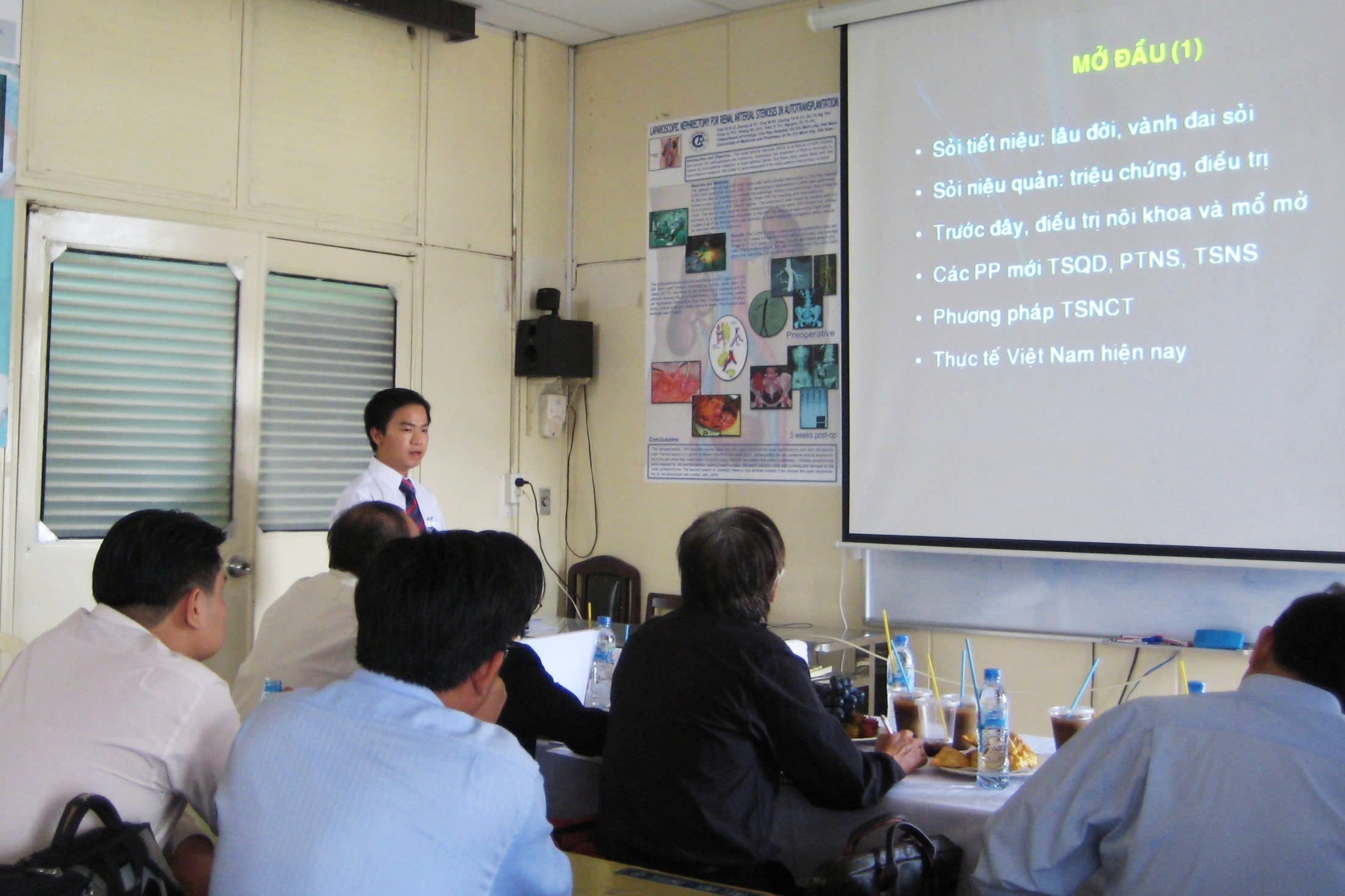
Doctor Tra Anh Duy when he was a medical resident (Photo: Doctor).
Third, about finances. When Dr. Duy was studying, the "resident" had a contract, received salary, allowances from the hospital and scholarships from the school, so he was assured of "burning" himself out for studying and researching.
“ I still remember my residency years, which were mostly long nights, difficult cases, and times of both nervousness and pride when standing in the operating room with great doctors.
There were complicated surgical assistant cases with the Head of Department, lasting more than 12 hours, when the work was finished, the radio station switched on the "late night story reading" section, only had time to drink some milk and continue listening to the "call the residents" order from the Emergency Department...
Now, I see that residents have to pay high tuition fees, are no longer hospital staff, are not primarily responsible for patients, are just like trainees and rarely live in the hospital. The number of trainees has increased, but their level of exposure and experience in the profession is less. Nowadays, residents no longer seem to be the "pioneer force" as before.
But no matter what era, resident doctors should not rush to believe themselves to be "elite" just because they are praised.
A doctor’s career cannot be measured by likes or shares. What lasts long is solid knowledge, professional skills, humane attitude and compassion for patients. Without these, fame will fade and may even become a burden.
Residency only helps us take the first few steps faster, but the road ahead is where our true abilities are tested. Therefore, you should take advantage of the opportunity to commit, experience, and "burn" yourself out during your residency and beyond. For doctors, learning never stops throughout their entire professional life," Dr. Tra Anh Duy expressed.

Doctor Tra Anh Duy (3rd from right) right after graduating from residency (Photo: Doctor).
What to do to ensure the quality of resident physicians?
Speaking to reporters, a representative of Pham Ngoc Thach University of Medicine (HCMC) said that the tuition fee for resident doctors in the most recent academic year that this place applied was 63 million VND/year, not including the cost of defending the outline and thesis. With a continuous training period of 3 years, this could be a financial burden for them and their families.
Currently, according to surveys, the number of people studying medicine at the undergraduate and postgraduate levels is increasing, while the number of hospital beds at clinical practice facilities is not increasing, leading to a decrease in opportunities to practice directly on patients.

Pham Ngoc Thach University of Medicine new campus (Photo: School).
Therefore, to ensure the quality of resident physician training in the current period, the School believes that increasing the number of students in each major is not necessary, but only increasing the number of training majors, to be able to comprehensively cover the health care needs of the people.
An equally important factor in helping to improve the quality of resident training is the administrative department. Due to the nature of the training requiring a large amount of time spent in the hospital, students may encounter difficulties with administrative paperwork.
At each practice facility, there should be a clinical team to act as a focal point for students and assist in receiving necessary documents, creating the most favorable conditions for resident doctors to confidently improve their expertise and professionalism.
Source: https://dantri.com.vn/suc-khoe/bac-si-noi-tru-dung-voi-tin-minh-la-tinh-hoa-chi-vi-duoc-tung-ho-20250916155245486.htm



![[Photo] General Secretary To Lam attends the ceremony to celebrate the 80th anniversary of the post and telecommunications sector and the 66th anniversary of the science and technology sector.](https://vphoto.vietnam.vn/thumb/1200x675/vietnam/resource/IMAGE/2025/9/29/8e86b39b8fe44121a2b14a031f4cef46)
![[Photo] General Secretary To Lam chairs the meeting of the Central Steering Committee on preventing and combating corruption, waste and negativity](https://vphoto.vietnam.vn/thumb/1200x675/vietnam/resource/IMAGE/2025/9/29/fb2a8712315d4213a16322588c57b975)
![[Photo] Many streets in Hanoi were flooded due to the effects of storm Bualoi](https://vphoto.vietnam.vn/thumb/1200x675/vietnam/resource/IMAGE/2025/9/29/18b658aa0fa2495c927ade4bbe0096df)
![[Photo] General Secretary To Lam receives US Ambassador to Vietnam Marc Knapper](https://vphoto.vietnam.vn/thumb/1200x675/vietnam/resource/IMAGE/2025/9/29/c8fd0761aa184da7814aee57d87c49b3)
![[Photo] National Assembly Chairman Tran Thanh Man chairs the 8th Conference of full-time National Assembly deputies](https://vphoto.vietnam.vn/thumb/1200x675/vietnam/resource/IMAGE/2025/9/29/2c21459bc38d44ffaacd679ab9a0477c)




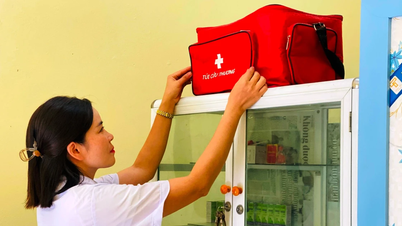







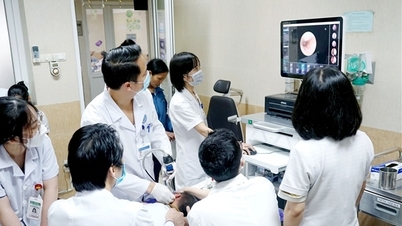

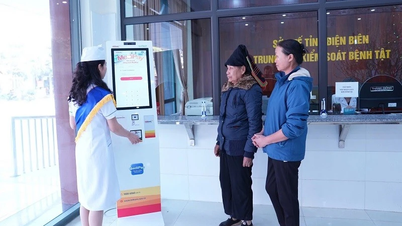

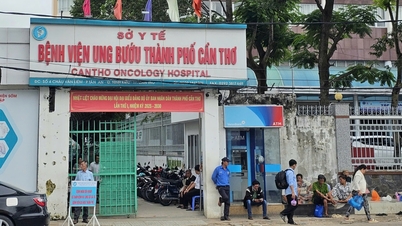









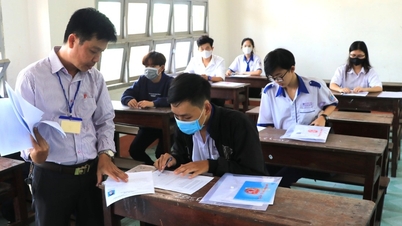




































































Comment (0)